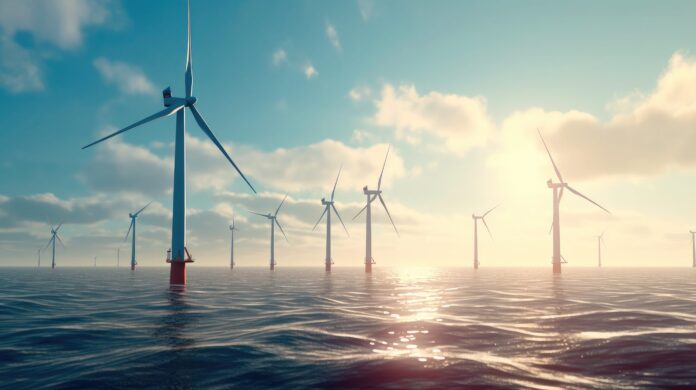Vodafone also deployed 2G, LTE and 5G technology to improve the operational capabilities of RWE’s offshore wind farm
German carrier Vodafone and compatriot energy company RWE have signed a deal to power thousands of cellular network towers across Germany with renewable energy from offshore wind turbines in the North Sea.
Around 1,000 gigawatt hours of wind energy are produced at RWE’s Kaskasi offshore wind farm every year. From 2026, the energy from this wind farm will also be used for the more sustainable operation of the 5G mobile network in Germany, Vodafone said in a release.
Under the agreement, Vodafone will purchase 250 gigawatt hours of wind energy per year from Kaskasi wind farm via a power purchase agreement (PPA).The electricity supply contract will run for 10 years and ensures that around 12,000 mobile phone stations across Germany can be permanently operated with electricity from renewable energy sources, said Vodafone.
Vodafone also deployed 2G, LTE and 5G technology to improve the operational capabilities of the wind farm. The carrier noted that a special offshore mobile phone station currently connects the technicians on site, while plans also stipulates that 5G will also connect drones and sensors in the future. The German telco explained that 5G will enable inspection drones to be controlled in real time via mobile communications in order to detect potential technical impairments in the huge wind turbines at an early stage. Also, networked sensors from telemedicine will increase the safety of employees on site.
“We are bringing modern 5G to the sea to support the generation of wind energy in Germany. And we use wind energy from the sea to make mobile communications in Germany more sustainable – because if we want to support the energy transition with digitalization, then we ourselves have to set a good example and therefore operate our network from 100% renewable energy sources,” said Vodafone Germany CEO Philippe Rogge.
Ulf Kerstin, chief commercial officer of RWE Supply & Trading, said: “With our green energy solutions, we are helping to ensure that the energy transition is also making progress for our industrial customers. Kaskasi is now our sixth wind farm in the German North Sea. And we have even more plans – we are currently developing the North Sea cluster north of Juist. A further 1.6 gigawatts will be created there in the next few years.”
Vodafone Germany’s 5G network reached 91% of the country’s population as of the end of 2023. Meanwhile, the operator’s 5G Standalone network (SA) currently serves nearly 45% of the German population, the telco added. Vodafone previously said that 5G SA technology will reach nationwide coverage by 2025.
Vodafone Germany had launched its 5G SA network in 2022 in partnership with Ericsson, Nokia, Qualcomm and Oppo. For the 5G expansion, Vodafone is currently relying on frequencies in the 3.6 GHz, 1.8 GHz and 700 MHz bands in large urban areas, residential areas and suburbs and rural areas across Germany.
Vodafone initially launched its 5G network in Germany in 2019, using 3.5 GHz frequencies that it acquired from Telefónica in 2018.

